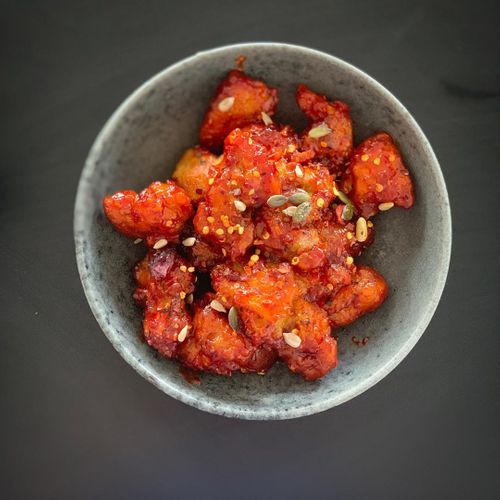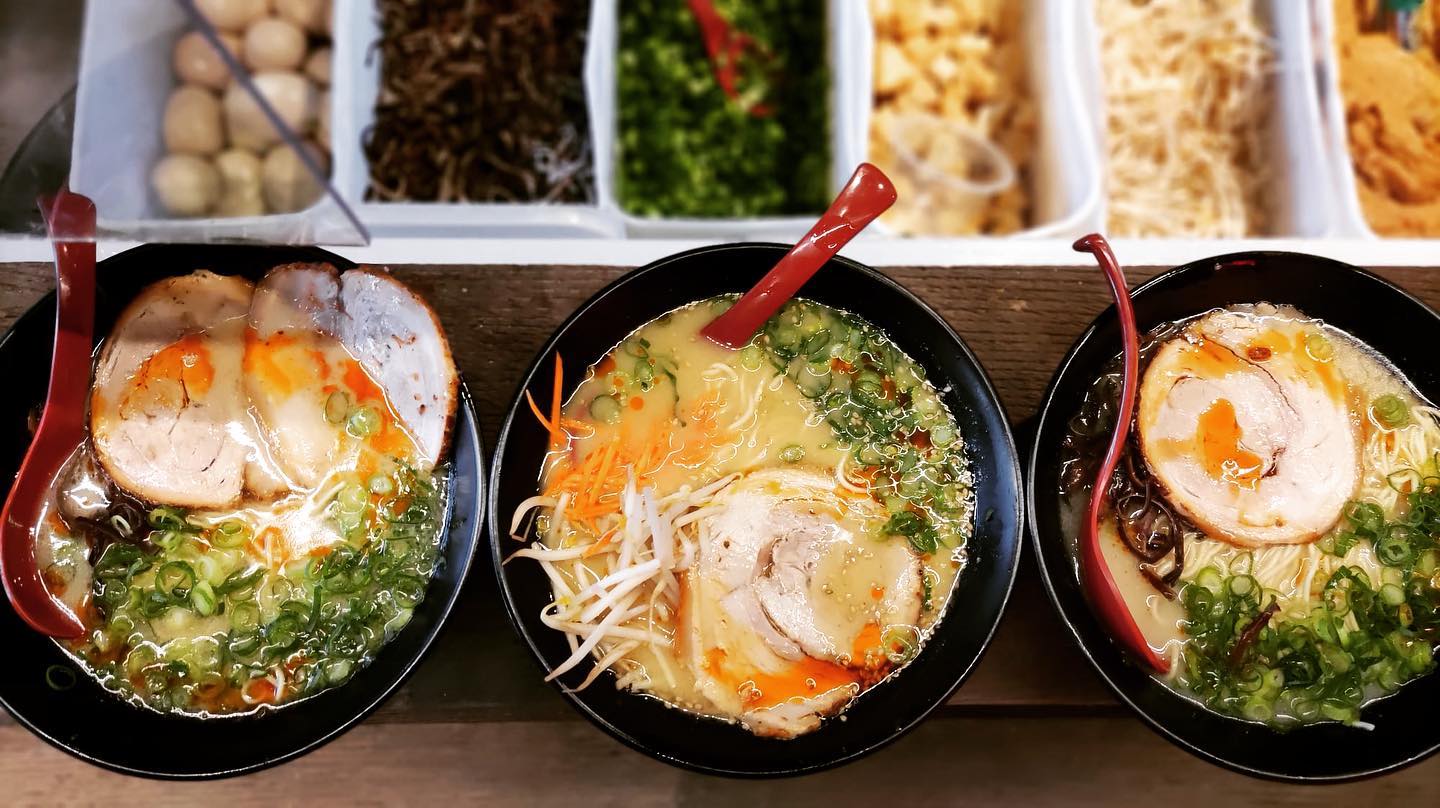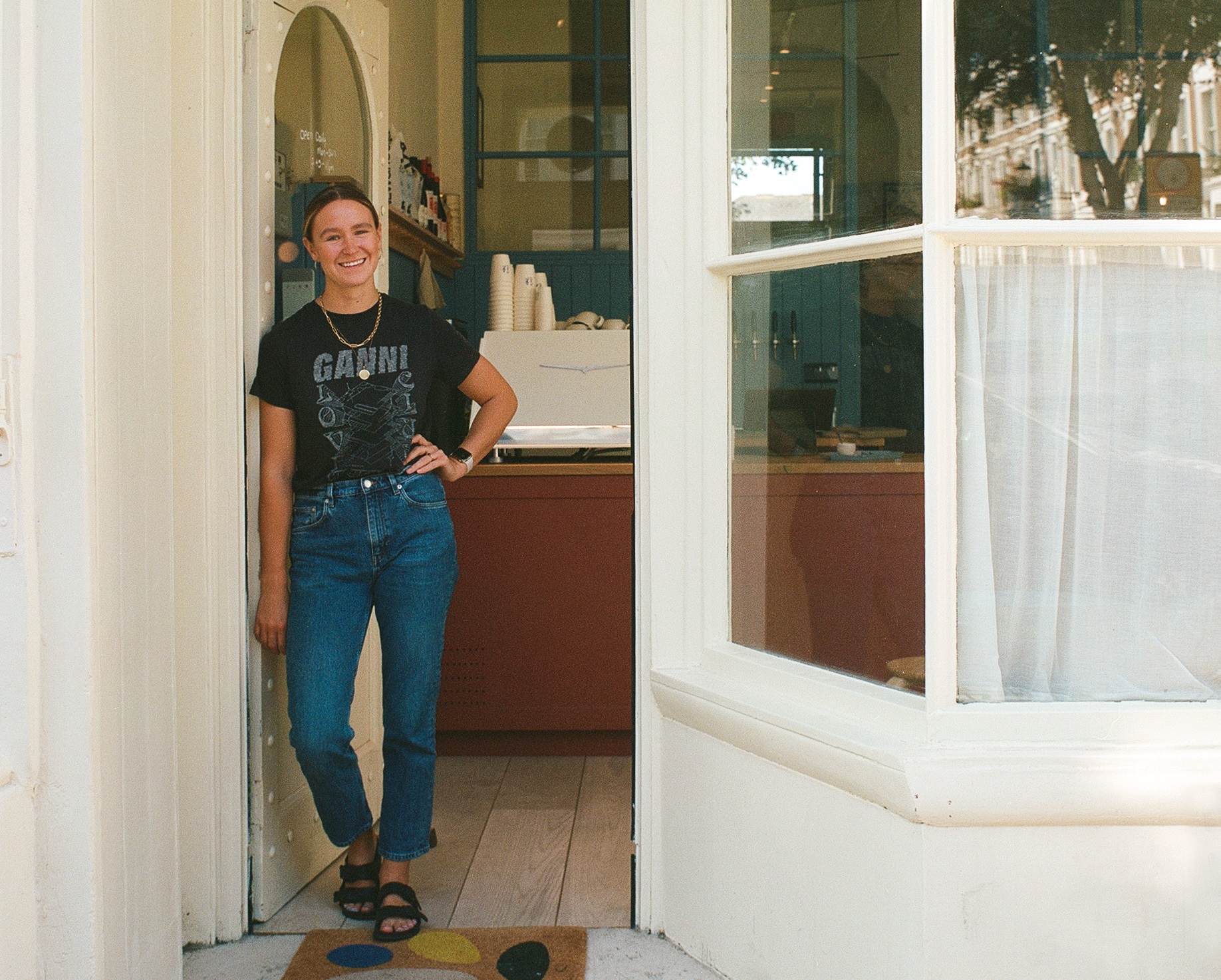The past few years have seen a serious uptick in the number of Korean restaurants in London – 2016 alone welcomed 100 new Korean food vendors onto the scene – and with it, the growing popularity of Korean cuisine. Among Londoners’ favourite dishes are bibimbap (an extremely versatile, rice-based dish with vegetables), classic kimchi, and Korean Fried Chicken, which is defined by its use of ginger, sesame oil and gochujang (find a simple recipe for it here if you’re in the mood to get creative).
Perhaps unsurprisingly, gochujang is now receiving some serious attention. Its popularity has grown in the UK by 46% each month since January, according to Tastewise’s Food Trends report.

With an at once sweet, savoury and spicy tang, gochujang is an extremely popular condiment in Korea, used in marinades, stews and sauces, and even as a dip. It is traditionally made by fermenting chilli powder, glutinous rice, meju powder (made from fermented soybeans), yeotgireum (barley malt powder), and salt in clay pots, which are kept outdoors for several months. Commercial and westernised gochujang however, is often fermented for much shorter periods of time. The act of fermenting is what creates the much sought-after “umami” flavour.
The key to gochujang is to use it sparingly. A little will go a long way to livening up simple or starchy dishes, such as this gochujang and sesame roasted squash. From roasted vegetables and salad dressings to rice-based meals, this condiment proves extremely versatile, though advice tends to be to use it within a dish rather than as a stand-alone dip.
That being said, chef and owner of BOMBOM kitchen Seji Hong does sometimes use it as a delicious (albeit spicy) dip for raw vegetable sticks, such as cucumber or carrot. It should be noted that gochujang is not hugely dissimilar from sriracha, though it is considered far more intense thanks to the fermentation process which produces a greater depth of taste. To get a fuller picture on the increasingly popular condiment, Hawkker approached Seji with some questions about gochujang.
Does the name ‘gochujang’ have a particular meaning?
Gochujang is fermented chilli paste. Gochu refers to red chilli, and Jang refers to traditional Korean fermented condiments made with soybean, such as ganjang (soy sauce), doenjang (soybean paste), and gochujang (red chilli paste).
How is gochujang different from other hot sauce condiments?
You might think sriracha and gochujang are similar in that they both use chilli, but sriracha is also made with vinegar and is used mostly in sauces, as a topping or a dip. On the other hand, gochujang is a fermented sauce made with fermented soybeans and, in Korean cuisine, gochujang is a key ingredient in a lot of dishes such as jjigae (stew) or even in pancakes. It’s an essential ingredient in the Korean pantry.
Gochujang is known for being sweet, savoury and spicy at the same time. What do you like it best with?
Marinades, sauces, stews, soups, salads… Everywhere! There are a couple of simple recipes I use a lot:
Chochujang Bibimbap:
This is a slight twist on bibimbap (I like it with meat and assorted vegetables), which I turn into a “chochujang” bibimbap by adding the cho-gochujang dressing. The fun here is that you can create newness by blending it with other condiments (you just have to find the ones that work). If you blend vinegar, sugar and sesame oil in gochujang, it creates a more savoury sauce that’s delicious with various raw vegetables or steamed broccoli, and seafood such as grilled squid.

Spicy Tomato + Gochujang Spaghetti:
By adding gochujang to tomato paste, you can build on the premise that gochujang goes splendidly with cheese for a fun Italian-Korean fusion pasta dish.
If you’re feeling inspired to try some, you can find small packs (classically in small red boxes) of gochujang at your local Asian grocery store. Equally, if you’d like to see what Seji is up to, you can check out her Instagram or website, or even drop by Boulevard Market in Islington Square every Friday, Saturday and Sunday to get your fix of natural wine and essential Korean pantry goods.








